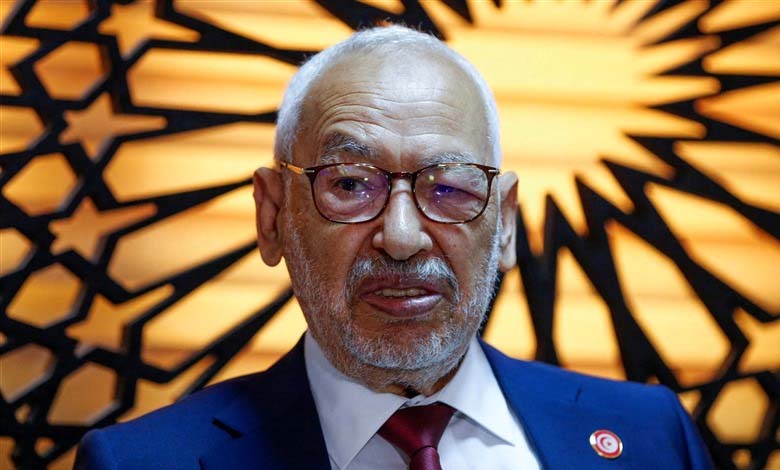Tunisian Muslim Brotherhood Leader Sentenced to Three Years in Prison

The criminal chamber specializing in financial corruption cases at the Tunis Court of Appeal has upheld the initial ruling sentencing Tunisian Muslim Brotherhood leader Rached Ghannouchi and his son-in-law, former Foreign Minister Rafik Abdessalem, to three years in prison with immediate execution. This is related to the foreign funding case, known in the media as the “Lobbying Case.”
-
As the election date approaches… Muslim Brotherhood in Tunisia intensifies efforts to disrupt
-
Who is Noureddine Bhiri, the mastermind of the Muslim Brotherhood in Tunisia, accused in the travel case after being sentenced?
The Economic and Financial Judiciary Pole (a specialized court) had earlier issued the sentence in the presence of Rached Ghannouchi and in absentia for Rafik Abdessalem, who is currently abroad, specifically in the United Kingdom. Both were sentenced to three years in prison with immediate execution.
Additionally, Ghannouchi, Abdessalem, and the legal representative of the Ennahdha Movement were fined an amount equivalent to the foreign funding received in connection with the lobbying contracts.
-
Saied is determined to eliminate the Muslim Brotherhood in Tunisia… Details
-
The Ennahdha Movement collapses… Crises hit the Muslim Brotherhood in Tunisia
On July 13, the Tunis Primary Court sentenced Ghannouchi and his son-in-law to three years in prison over this matter.
It is worth noting that the Court of Accounts, in its general report on the results of monitoring the financing of campaigns for the 2019 presidential and legislative elections, revealed that Ennahdha signed a four-year contract in 2014 with the American lobbying and public relations firm BCW for $285,000.
-
Hours After His Release… Tunisian Authorities Re-Arrest Muslim Brotherhood Leader
-
Tunisia: Mekki’s Return to the Presidential Race Revives Muslim Brotherhood Hopes Despite Their Diminished Popularity
This contract was renewed from July 16, 2019, to December 17 of the same year for $187,000, which the court considered as a “suspicion of foreign funding” under Article 163 of the Electoral Law.
According to the contract, the movement sought to rely on an external lobby to bolster its image in Tunisia, aiming to encourage foreign entities to support it. The main goal was to influence the American public and administration by portraying events in Tunisia as a “coup against democracy” rather than a correction of grave mistakes.
-
Muslim Brotherhood Practices: Spread of Fake Accounts in Tunisia to Influence Elections
-
Tunisia’s Muslim Brotherhood and the Elections: Presidential Messages Expose Efforts to Gain Foreign Support
On April 17, 2023, Tunisian authorities imprisoned Rached Ghannouchi over charges of conspiracy against state security following his incitement to chaos and unrest.
Ghannouchi is being prosecuted under Article 72 of the Penal Code, which stipulates that “the perpetrator of an attack aimed at changing the structure of the state or inciting the population to attack each other with weapons, causing chaos, killings, and looting on Tunisian soil, is punishable by death.”












